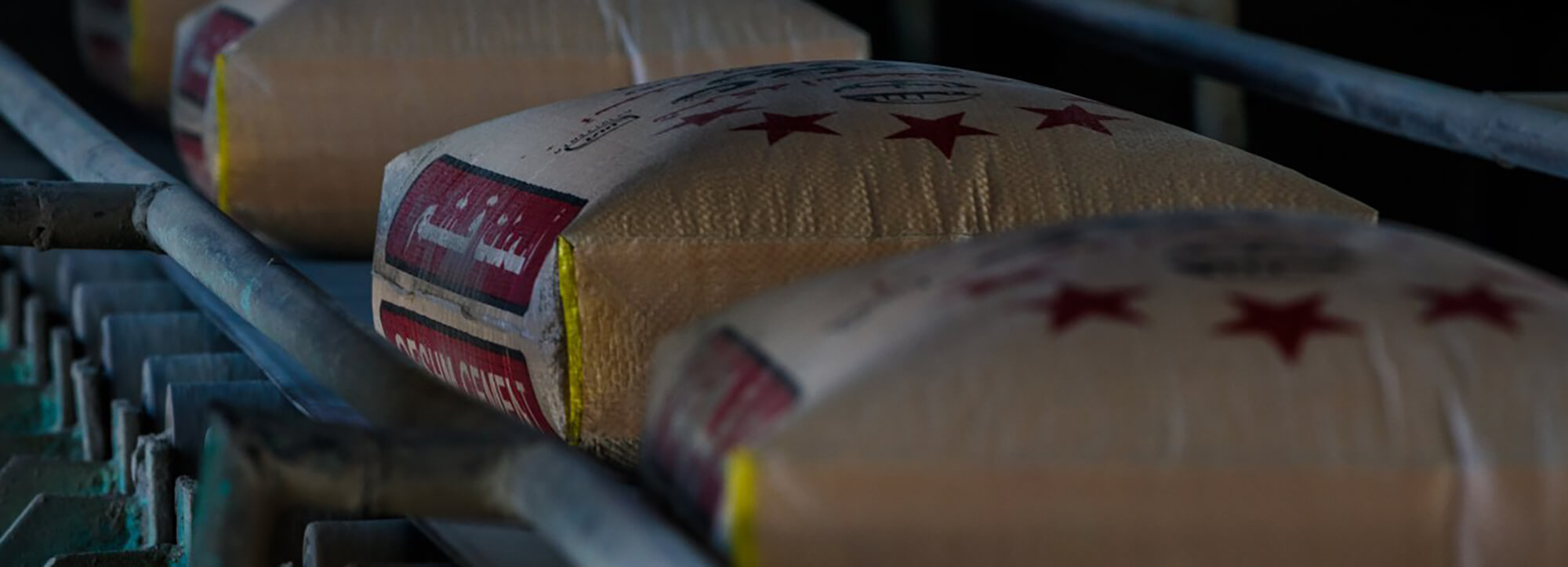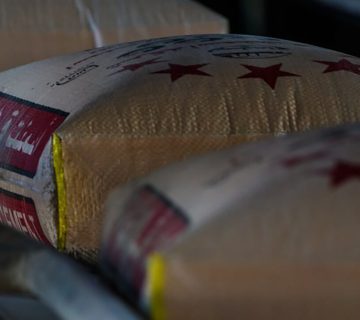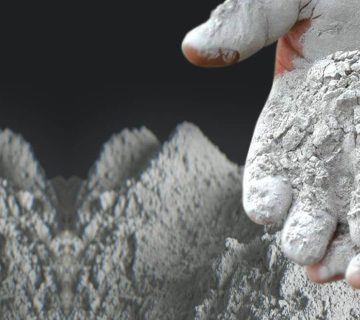A type of cement that is called Portland cement mixed in the industry is type 2 cement, which is known among consumers as modified cement or medium heat cement. When this cement is used, it creates little heat during its hydration and does not cause problems in hot areas. Type 2 cement is one of the examples of cement that is resistant to salts and ions and can protect all reinforcement used in buildings from the effects of rust and corrosion.
In terms of raw materials, this type of cement has a similar composition to type one Portland cement, but because its C3A phase content is less than 8%, it has moderate resistance to sulfate attack and is a better type than type one and similar to Portland cement. Modified is famous. Among its features, we can mention moderate heat generation (heat of hydration) and relative anti-sulfate property and relatively slow setting and suitable for concreting in hot weather.
The physical and chemical characteristics of the type 2 cement produced by this company according to the national standard of Iran are as follows:
According to the national standard of Iran, this type of cement is divided into two categories:
This cement is used for general works, especially in cases where medium resistance against sulfates is desired.
This cement is used for general use and especially when moderate heat of hydration and moderate resistance to sulfate attack is desired.
- Type 2 cement has a medium durability in sulfate environment due to having a maximum of 5.7% tricalcium aluminate (C3A). Type 2 Portland cement is used in cases where the goal is to take preventive measures to maintain concrete in medium sulfate environment. Type 2 cement produces less heat at a slower rate during the hydration process than type 1 cement. Due to the use of this cement, temperature increase and thermal cracks are reduced, this feature has developed the use of type 2 cement for concreting in hot weather.
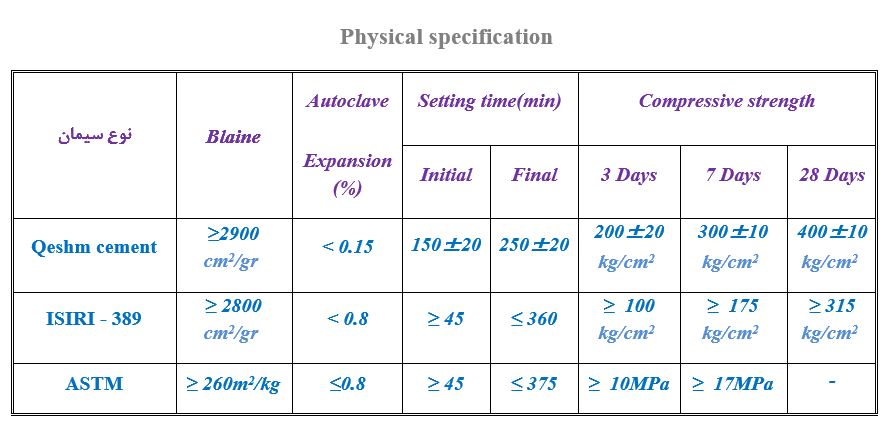
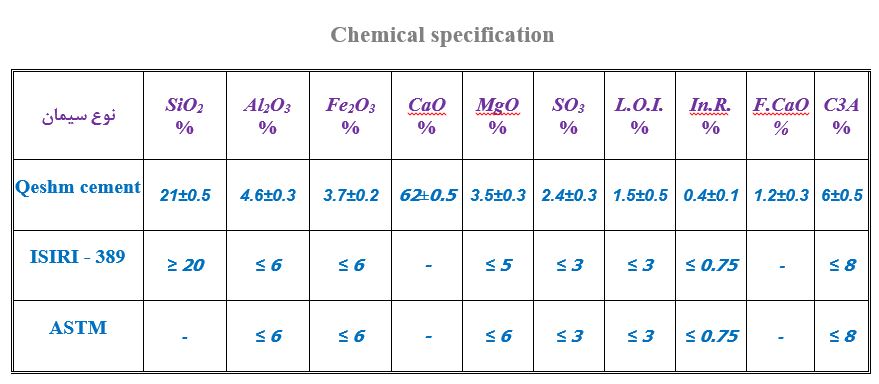
Some of the properties and characteristics of concrete made with type 2 Portland cement of this company are as follows:
⦁ Suitable resistance against combined chlorine and sulfate corrosion and reduction of reinforcement corrosion in concrete
⦁ Creating less cracks in concrete due to low heat of hydration⦁ Resistance to destructive alcoholic reactions
⦁ Increasing the durability of concrete due to the gradual and continuous increase in resistance
Its use in public uses and environments that are relatively salty and sulfate attack is moderate is recommended for the production of concrete water pipes, canals and sewers, sidewalks and foundations.
Note: The use of this type of cement is not allowed for structures that are severely attacked by sulfates, such as marine structures.


